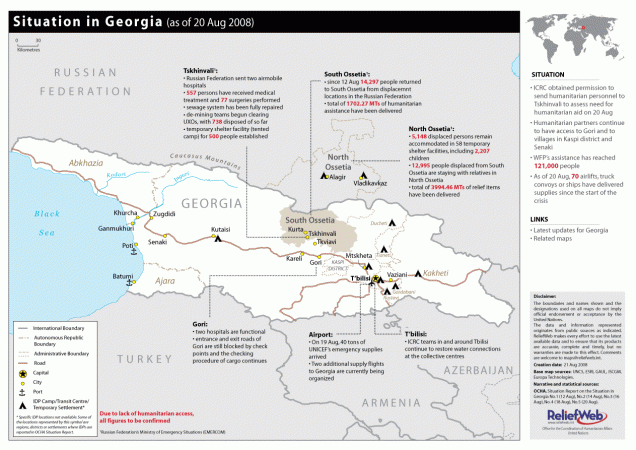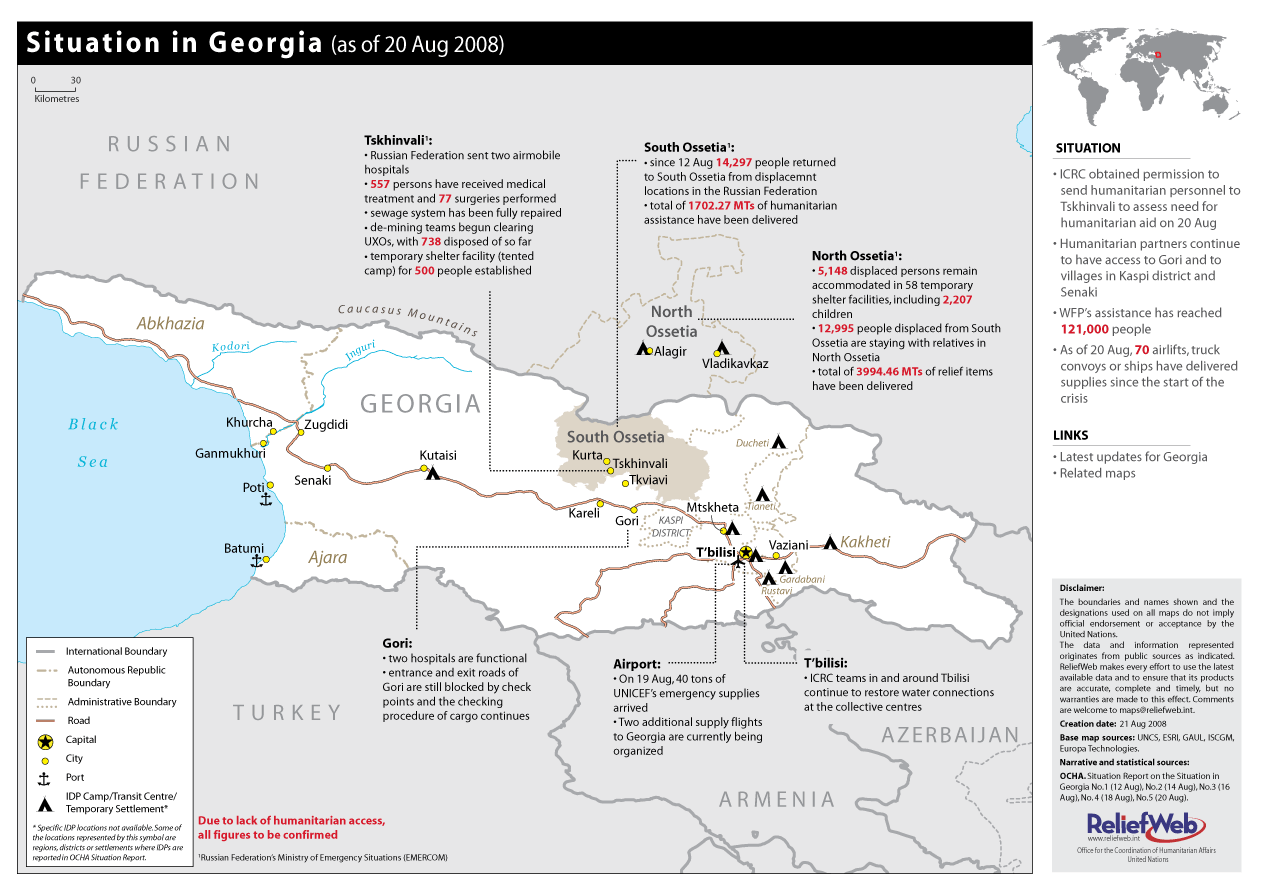Georgia. Europe sends two teams to coordinate aid
(BRUSSELS2) Several European specialists in humanitarian aid and disaster relief have reached Tbilisi in recent days.
The former are agents ofEcho, the European Humanitarian Aid Office; some were stationed in Amman - Echo's regional office responsible for the Caucasus, others in Moscow; all are experienced and connoisseurs of the Caucasian question - which has mobilized humanitarian aid on numerous occasions (cf. Chechnya in particular) -. Their first task: to assess the needs, to gather all the information to enable the proper deployment of European humanitarian aid.
The second arrived under the European Civil Security Coordination Mechanism (MIC), often deployed for forest fires or other natural disasters. It's a bit of a baptism of fire, for the MIC, that this situation in time of armed conflict (and it is undoubtedly necessary to see there a will of the French presidency of the Union to further promote European civil security). There is a Dane - leader of the team -, a Frenchman, deputy chief (colonel of firefighters, of the SDIS of Charente), a Briton, expert in coordination, as well as an agent of the European Commission. Their mission: also lend a needs assessment on forest fires for example (there are "needs in equipment" explained to me their spokesperson), the help to people also.
On the humanitarian side, there is not one situation but three kinds of situations on the spot, a European official explains to me (the map allows you to find your bearings).

1) In Tbilisi (the capital) and surroundings, there is no problem of access, the city is calm, and well supplied.
We are in a situation, quite classic, of an influx of a population. But the humanitarian machine has started. The situation is stable, "under control", and the needs rather covered. What is more problematic is the logistics, you have to be able to locate and supply all the reception centers set up by the Georgians (there are more than 500). 70 people have arrived, little by little, in the Georgian capital, who have lost everything, refugees from South Ossetia or displaced from the combat zone. Basic food products - bread, beans, boxes... - were distributed by the World Food Program ; other needs (sleeping, hygiene, soap, etc.) covered by two partner NGOs of the EC (Première urgence and the Danish Refugee Council); all financed in part by the first emergency aid released by the EC (one million euros).
2) To the west of Georgia, near Abkhazia, (Zugdidi...), it's more complicated.
The information is confused. Access is possible but difficult because the main road (by Gori) is cut off; it is therefore necessary to take a secondary road through the mountains, which takes time. There are needs, we know that there are displaced people. But we still have to make an assessment.
3) In Gori and South Ossetia.
We cannot work, safety is not guaranteed. Only the International Red Cross (ICRC) has, in fact, access for the moment to this region, passing through North Ossetia. The United Nations does not have access to it. Two WFP trucks were able to bring rations to the south of Gori, valid for 2500 people for 10 days, thanks to European financial support. But that's all (for now). Information is circulating, via people who have fled the region, but it remains difficult to identify the real needs on the spot. According to the WFP, there are perhaps 10 people in southern Gori who were displaced either unable to reach Gori or who preferred to stay in Gori.
(Nicolas Gros-Verheyde)
Read also: the first needs assessment by the ICRC

